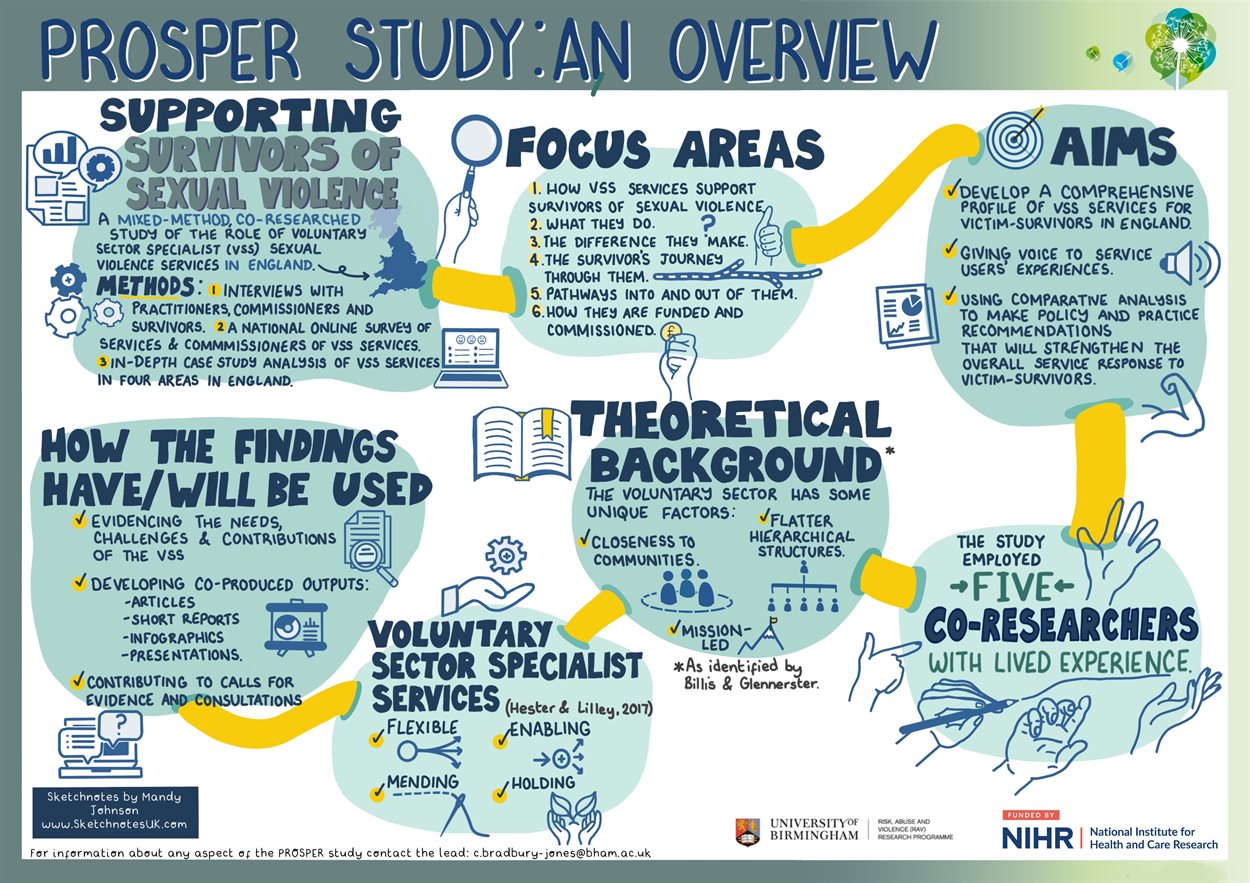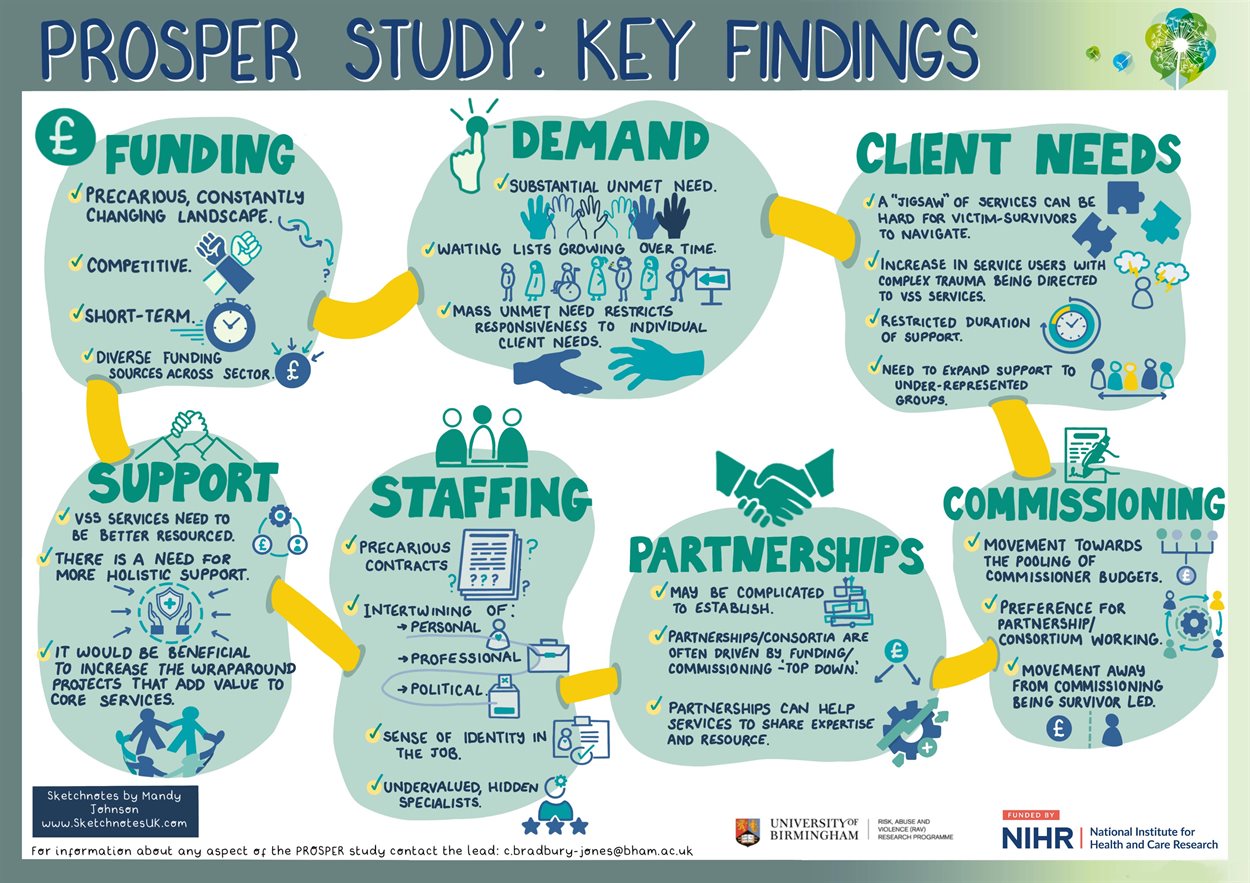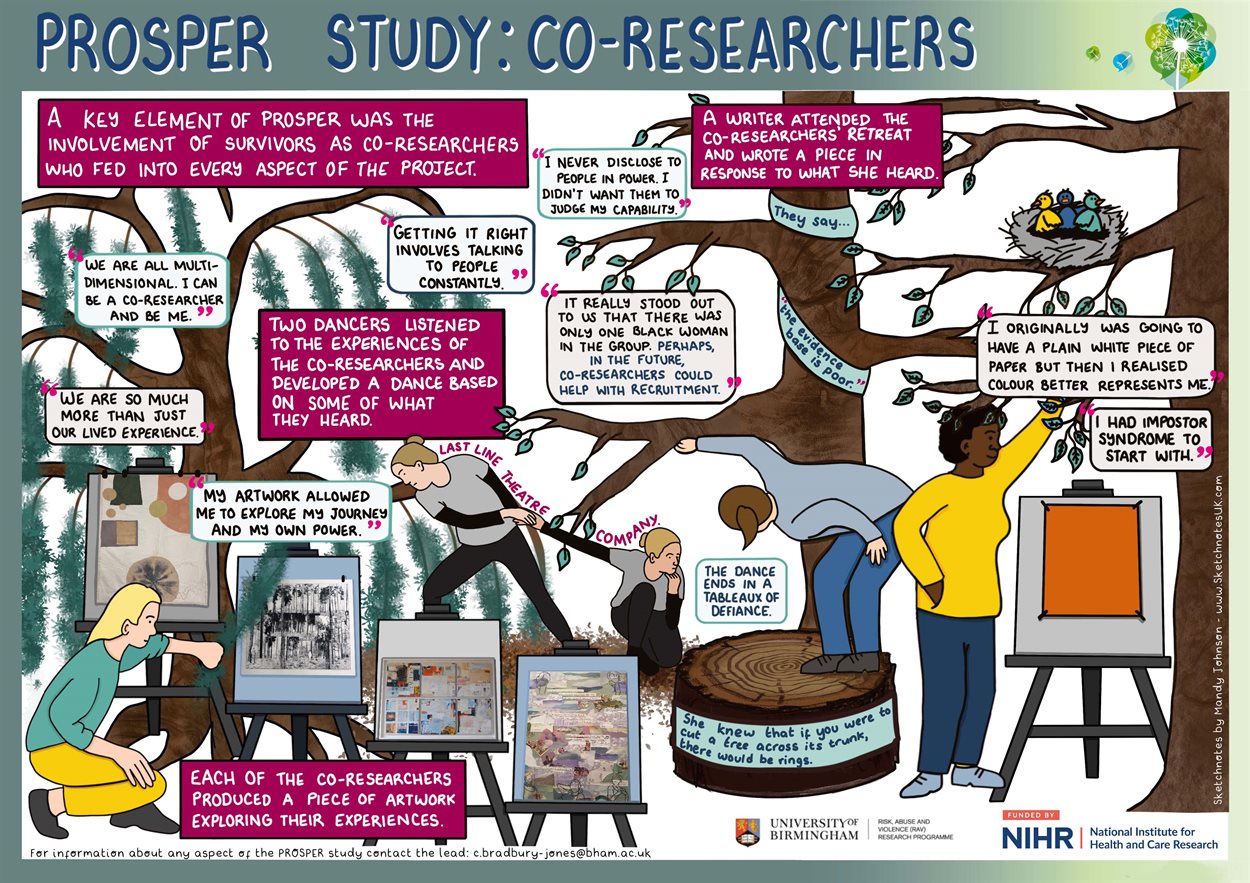Infographics texts

Supporting survivors of sexual violence
A mixed method, co-researched study of the role of voluntary specialist services (VSS) sexual violence services in England.
Methods
- Interviews with practioners, commissioners and survivors.
- A national online survey of services and commissioners of VSS services.
- In-depth case study analysis of VSS services in four areas of England.
Focus areas
- How VSS services support survivors of sexual violence.
- What they do.
- The differences they make.
- The survivors journey through them.
- Pathways into and out of them.
- How they are funded and commissioned.
Aims
- Develop a comprehensive profile of VSS services for victim-survivors in England
- Giving voice to service users' experience
- Using comparative analysis to make policy and practice recommendations that will strengthen the overall service response to victim-survivors
The study employed five co-researchers with lived experience.
Theoretical Background*
The voluntary sector has some unique factors:
- Closeness to communities
- Flatter hierarchal structures
- Mission-led
*As identified by Billis and Glennerster
Voluntary Sector Specialist Services
(Hester and Lilley, 2017).
- Flexible
- Enabling
- Mending
- Holding
How the findings have/will be used
- Evidencing the needs, challenges and contributions of the VSS
- Developing co-produced outputs:
Articles
Short reports
Infographics
Presentations.
- Contributing to calls for evidence and consultations
For more information about any aspect of the PROSPER study contact the lead: c.bradbury-jones@bham.ac.uk

Funding
- Precarious, constantly changing landscape.
- Competitive
- Short-term
- Diverse funding sources across sector.
Demand
- Substantial unmet need.
- Waiting lists growing over time.
- Mass unmet need restricts responsiveness to individual client needs.
Client needs
- A "jigsaw" of services can be hard for victim-survivors to navigate.
- Increase in service users with complex trauma being directed to VSS services.
- Restricted duration of support.
- Need to expand support to under-represented groups.
Commissioning
- Moving towards the pooling of commissioner budgets.
- Preference for partnership/consortium working.
- Movement from commissioning being survior led.
Partnerships
- May be complicated to establish.
- Partnerships/ Consortia are often driven by funding/ commissioning- 'top-down'.
- Partnerships can help services to share expertise and resource.
Staffing
- Precarious contracts.
- Intertwining of:
- Personal
- Professional
- Political
- Sense of identity in the job.
- Undervalued, hidden specialists.
Support
- Yes services need to be better resourced.
- It would be beneficial to increase the wraparound projects that add value to core services.
For more information about any aspect of the PROSPER study contact the lead: c.bradbury-jones@bham.ac.uk

Image contains two trees with quotes written across the branches.
First tree with quotes written across its branches
A key element of Prosper was the involvement of survivors as co-researchers who fed into every aspect of the project.
"We are all multi-dimensional. I can be a co-researcher and be me."
"Getting it right involves talking to people constantly."
"We are all so much more than just our lived experience."
Second part there are three dancers dancing next to the trees
Two dancers listened to the experiences of the Co-Researchers and developed a dance based on what they heard.
The dance ends in a tableaux of defiance.
Second tree with quotes written across its branches
A writer attended the co-researchers' retreat and wrote a piece in response to what she heard.
They say "the evidence base is poor" (this wording is wrapped around the trunk of the tree).
She knew that if you were to cut a tree across its trunk, there would be rings. (written on top of a tree trunk).
"It really stood out to us that there was only one black woman in the group. Prehaps in the future, co-researchers could help with recruitment."
"I was originally was going to have a plain white piece of paper but then I realised colour better represents me."
"I had imposter syndrome to start with." (written next to an art easel).
Each of the co-researchers produced a piece of artwork exploring their experiences
"My artwork allowed me to explore my journey and my own power." (written next to four easels)
For more information about any aspect of the PROSPER study contact the lead: c.bradbury-jones@bham.ac.uk